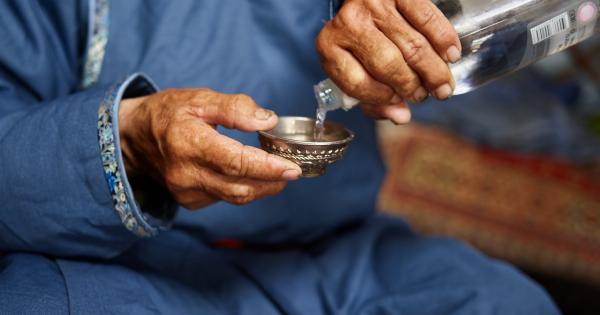Alcohol is a widely consumed substance that has both physical and psychological effects on the human body. While many individuals enjoy moderate drinking, excessive alcohol consumption can lead to various health issues.
One area where alcohol can have a significant impact is male sexual performance. In this article, we will explore the effects of alcohol on male sexual health and discuss its potential consequences.
The Link Between Alcohol and Erectile Dysfunction
Erectile dysfunction (ED) is a condition characterized by the inability to achieve or maintain an erection sufficient for sexual activity. Several studies have shown a direct correlation between alcohol consumption and the development of ED in men.
Alcohol acts as a depressant on the central nervous system, reducing blood flow to the penis and impeding the ability to achieve an erection.
Alcohol’s Impact on Testosterone Levels
Testosterone is a hormone that plays a crucial role in male sexual health and performance. Alcohol consumption can lead to a decrease in testosterone levels, which can negatively affect sexual desire and function.
Additionally, long-term excessive drinking can contribute to a condition known as hypogonadism, where the body produces insufficient testosterone.
The Effect of Alcohol on Libido
While alcohol can initially act as a social lubricant and increase feelings of relaxation and confidence, excessive drinking can hinder sexual desire over time.
Alcohol affects the brain’s neurotransmitters, leading to a decrease in libido and sexual arousal.
Delayed Ejaculation and Alcohol
Another common sexual issue associated with alcohol consumption is delayed ejaculation or inability to ejaculate. Alcohol affects the nerves that control ejaculation, resulting in longer periods of sexual activity before orgasm can be achieved.
Alcohol’s Influence on Stamina and Performance
Alcohol is known to impair motor skills and overall physical performance. This impairment can extend to sexual performance as well.
Excessive alcohol consumption can lead to decreased stamina, reduced coordination, and difficulty in maintaining sexual rhythm and technique.
Alcohol’s Role in Premature Ejaculation
In contrast to delayed ejaculation, alcohol can also contribute to premature ejaculation in some individuals.
Alcohol affects the brain’s ability to regulate sexual stimulation and can lead to an inability to control ejaculation, resulting in early climax.
The Impact of Alcohol on Fertility
Alcohol consumption can have detrimental effects on male fertility. Excessive alcohol intake can lead to a decrease in sperm quality, including decreased sperm count and motility.
Furthermore, alcohol exposure during conception can potentially harm the development and health of the fetus.
Alcohol Abuse and Relationship Issues
Excessive alcohol consumption can strain relationships, leading to various issues, including decreased intimacy and communication problems.
Sexual dissatisfaction can arise due to the impact of alcohol on sexual performance and desire, creating tension and resentment between partners.
Alcoholism and Sexual Dysfunction: Breaking the Cycle
For individuals struggling with alcoholism, seeking help is crucial to overcome the cycle of addiction and its detrimental effects on sexual health.
Professional treatment, therapy, and support groups can aid in recovery and improve overall sexual function.
Conclusion
While moderate alcohol consumption is generally considered safe, excessive drinking can have a significant impact on male sexual performance.
From erectile dysfunction to decreased libido and fertility issues, alcohol abuse can wreak havoc on both physical and emotional aspects of sexual health. Recognizing the risks and seeking help when needed can contribute to a healthier and more fulfilling sex life.































